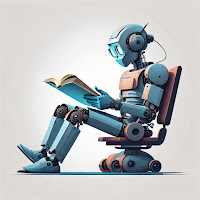In terms of promoting critical thinking, George Carlin, a
comedian, author, and social critic, has urged, “Don’t just teach your children
to read, teach them to question what they read. Teach them to question
everything!” Especially with “groupthink” permeating societies like cancer in
some parts of the world, individual questioning is of paramount importance. In
a similar vein, Eric Jensen, a speaker and writer on student poverty and
brain-based learning has pointed out, “Strong teachers don’t teach content:
Google has content. Strong teaching connects learning in ways that inspire kids
to learn more and strive for greatness.” The practical side of learning, as in
learning from mistakes, must not be overlooked. In this regard, the writer
Richard Bach has described mistakes as “unexpected learning experiences.”
As for proverbs on teaching, these two well-known
ones stand out:
- The old English proverb meaning you can provide opportunities for learning, but you cannot force it: “You can lead a horse to water, but you can’t make it drink.”
- The old Chinese proverb implying that teaching skills is more important than imparting content: “Give a man a fish, and you feed him for a day; teach a man to fish, and you feed him for a lifetime.”
There have been humorous sayings (and stories) about
teachers as well, of course. Here are just a few:
- The actress Lily Tomlin once said, “I like a teacher who gives you something to take home to think about besides homework.” It’s hard to disagree.
- Heidi McDonald, writer and editor of comic books, recounted, “A policeman pulled me over and asked me for my papers. I gladly gave him all of my students’ essays to grade and drove off.” She is also known for this observation: “Sunday is a teacher’s day of rest: the rest of the laundry, the rest of the housework, and grade the rest of the papers.”
No doubt, teachers themselves can learn while teaching, as
Phil Collins rightly points out in his song “Son of Man”: “In learning you will
teach, and in teaching you will learn.”















.jpg)

